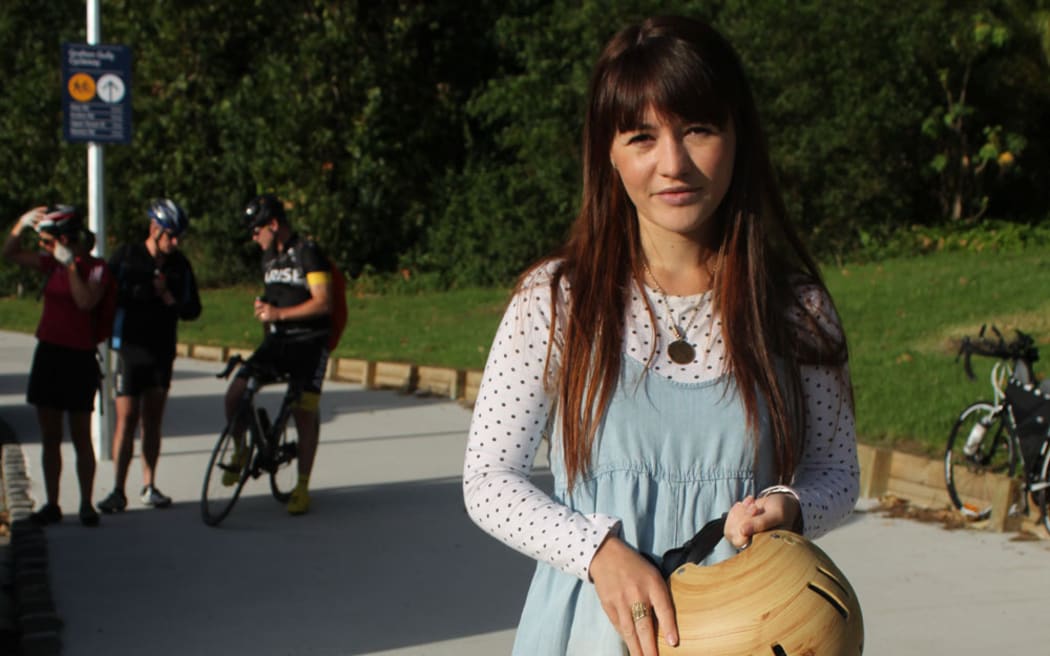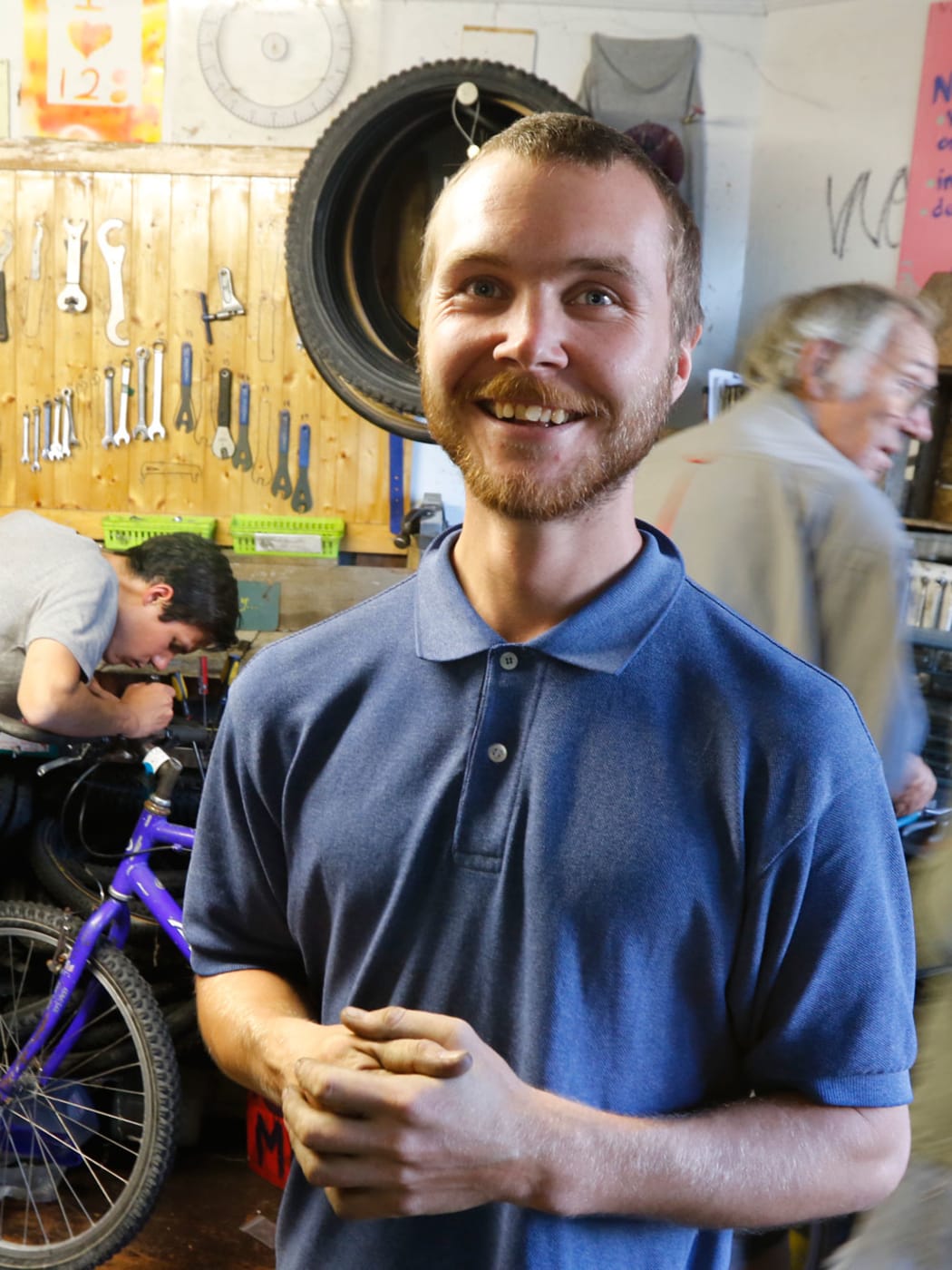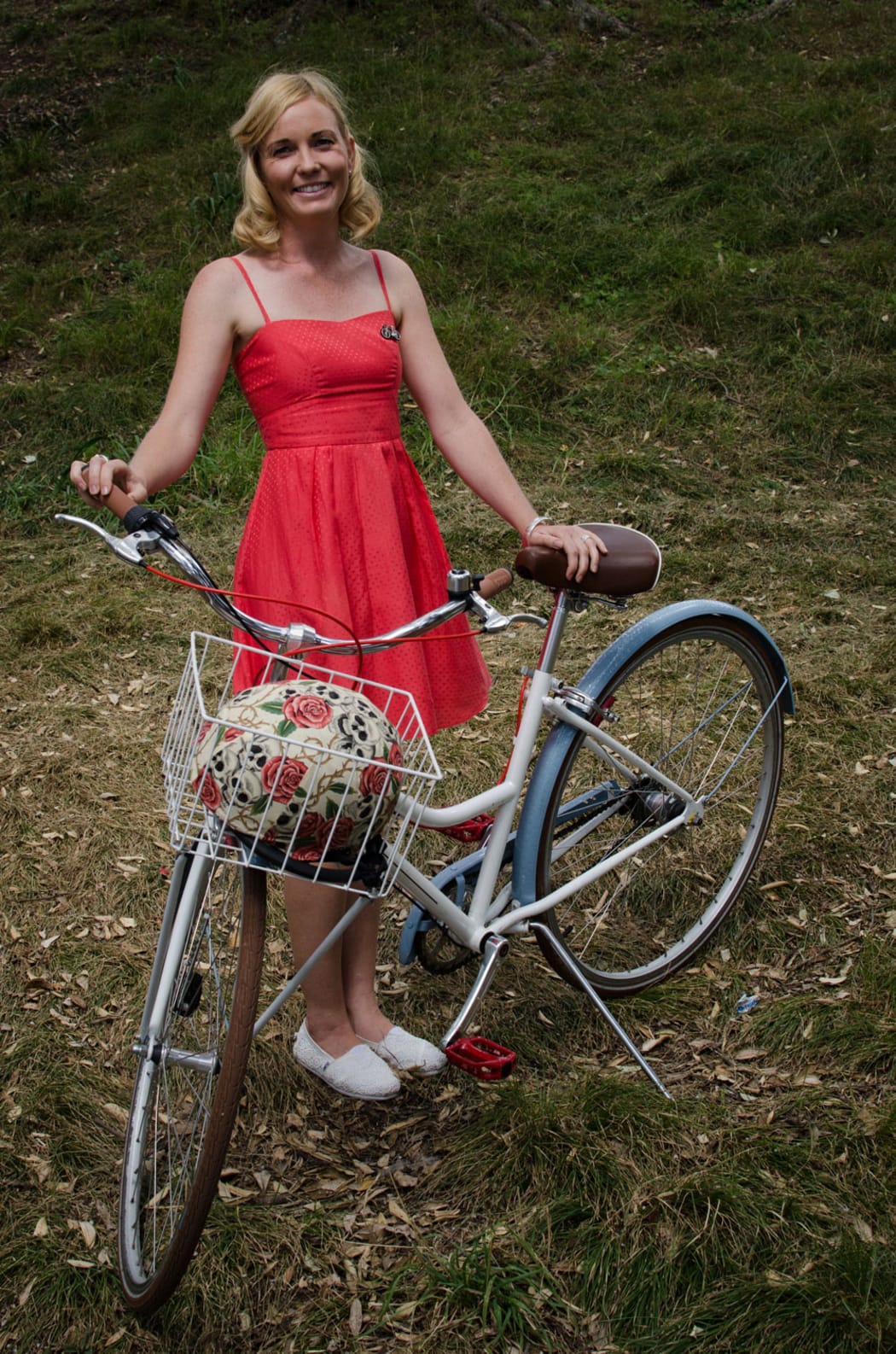Explore some local cycle cliques that make pedalling fun.

Generation Zero's cycle spokesperson Emma McInnes says there are too many barriers to cycling. Photo: Sophie Barclay.
There are plenty of reasons people chose not to cycle: an aversion to lycra and helmet hair, lack of bike lanes and shower-less offices. On top of that, our country has the third highest car ownership rate in the OECD. It’s no surprise then, that almost 50 per cent drive to work, compared with three per cent who cycle.
Some work is being done to turn that around with the Government spending $100 million on urban cycleways, including projects in Auckland, Hamilton, Palmerston North, Wellington, Christchurch and Dunedin.
But some pro-cycling supporters argue it's not enough and the Ministry of Transport had advised spending $450 million on urban cycleways to a level that would be safe and convenient for commuters and children riding to school.
“Less cycling infrastructure being built will mean more barriers to getting people out there cycling,” says Generation Zero cycling spokesperson Emma McInnes. “It will mean infrastructure that is less safe for children to cycle on, which could impact the number of kids riding bikes, and see us heading towards a more car-dependent future.”
There's also encouragement from Bike Wise Month. Celebrating two-wheeled transport, hundreds of cycle-related events are rolled out every February around the country and thousands of people, including schools, universities and businesses, take part in events like Go By Bike Day a couple weeks ago.
But once the free bike-puncture-fix-up kits have been handed out and the last city cycle map brochure has been snapped up, the calendar flips over to March, and a core group of bikers continue to do as they always have - engage in all kind of two-wheeled madness.
Bike polo players zoom around on souped-up bikes, chasing the ball and trying to whack it through the goal without mangling themselves and their fellow players, or flipping over the handlebars. The sport has been going since the 1820s when bicycles first appeared on the scene. Teams wheeled around on the grass and it was even an Olympic sport. The sport arrived on our fair shores in 2008 in its revamped version: hard court polo.
National tournaments are played on courts around the country, and next year Timaru will play host to the world championships - a first for Australasia.
Auckland Hard Court Bike Polo player, Alan England says his group has a small, but diverse, membership including academics, doctors, unemployed people and students. And, he stresses, none of them are die-hard environmentalists. “We’re just ordinary people; we like to have fun and we like the social aspect of getting together and sharing a common interest … To me, riding a bike is just a normal thing – like driving a car or getting on a bus, it’s just another way to get around.”
Bike polo is imbued with the do-it-yourself ethic, says Alan. “For somebody’s who’s just starting you can just turn up and we have spare bikes and mallets and helmets if you need them. Once you get into it, people will generally build their own bikes and mallets.”
Also following that ethos is Wellington’s volunteer-run Mechanical Tempest. The community bike workshop has been operating out of Te Aro’s radical social centre for around 10 years under the “teach a person to fish” principle. “Visually, [the space is] somewhat of a bike graveyard, with the aim of bringing the bikes back to life,” says volunteer Russell Silverwood.

Mechanical Tempest volunteer Russell Silverwood. Photo: Marcus Stickley.
Russell, who has been helping out at the workshop for a few years, says it addresses underlying issues that prevent people from fixing their own bikes. “The barriers are generally having parts, tools and some know-how… [For example] there’s a lot of proprietary parts and tools that you probably don’t want to fork out hundreds of dollars for just to use once or twice.”
The Mechanical Tempest operates under the “safer spaces” policy, ensuring that it caters to all audiences and is free from the dogmas of racism, capitalism and most other –isms. It even offers a Wenches with Wrenches workshop aimed at females and genderqueers.
Ministry of Transport research highlights the need for organisations catering specifically to female riders, revealing that men spend more time on bikes than women across all age groups. The fancy Frocks on Bikes flock, who don beautiful dresses, ride colourful bikes covered in flowers and cruise around the city in organised, fun-filled rides, mountain-biking group CrankSistas and the new Auckland-based cycle crew Lady Gang, are all trying to encourage women to give cycling a go.
The Frocks on Bikes crew are tackling lycra-phobia by organising inclusive, all-age, all-ability rides where people cycle in their glad rags. “When you ride somewhere you are just a person on a bike,” says Frocker Jessica Rose. “You don’t have to be a sports person … Part of the [Frocks] glamorous-ness… is showing that not only can you wear your normal clothes, it’s almost something you can get dressed up to do.”

Frocker Jessica Rose with her custom-made bike at the Love your Bike Valentine's Day event in Auckland. Photo: Benjamin Hoeksema
Rose, who is also a member of Lady Gang, says women-only cycle groups help to challenge ideas around womanhood and encourage women to pick up a bike and start cycling. “We’re all going to ride together, we’re going to support each other and also we’re going to be a beacon for other people who may have considered these ideas, or who want to take them up.”
Lady Gang founder Charlotte Ruddell says that having more women on the roads will make cycling a safer activity for everybody. “Statistics have shown that the more women who are cycling the better it is for the whole community in terms of safety … You slow down if you see lady cyclists.”
And, she says, ditching fluorescent cycle wear in favour of a hiked-up hemline is only going to make women bikers safer. “It’s better than wearing a Hi-Vis vest because there have been studies that show that that makes absolutely no difference in terms of motorists. I think if you are more visible and you can use your sexuality… to help you be seen on the road, it’s not a bad thing at all. And I really love it when I see older female cyclists who are rocking the red lipstick when they are on a bike ... It’s sassy.”
Lady Gang has harnessed the power of social media to increase its reach, says Ruddell. Formed in October last year, the group already boasts 90 members.
Social media is also widely used by groups like Bike Tag Wellington (where members take a photo of their bike in a place and there’s a kind of race to re-photograph the same spot with your bike) and the brand new Sunrise Coffee movement, which sees cyclists embark on an early morning adventure, packing coffee-brewing gear and biking to a beautiful spot to watch the sunrise.
Though diverse, all of these cycle subcultures have one thing in common; they have all been forced underground because of the dominance of, and reliance on, car transport.
But, says Ruddell, we all have the ability to change that. “We need more protected cycleways and for people to be better educated about how to share modes of transport; seeing other people as just trying to get from one point to another, rather than seeing it as motorists against pedestrians against cyclists... and more events will help too… The best thing anyone can do is just to get on a bike, don’t worry about what you are wearing, and go from there.”
LISTEN to Sophie Barclay's cycling story on our podcast, On The Dial. This week we also talk to competitive gamers and look at the perennial housing struggle for Auckland students:
This content is brought to you with funding support from NZ On Air.

